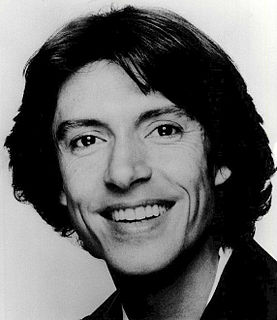A Quote by Neil deGrasse Tyson
Everything we do, every thought we've ever had, is produced by the human brain. But exactly how it operates remains one of the biggest unsolved mysteries, and it seems the more we probe its secrets, the more surprises we find.
Related Quotes
There is something at the bottom of every new human thought, every thought of genius, or even every earnest thought that springs up in any brain, which can never be communicated to others, even if one were to write volumes about it and were explaining one's idea for thirty-five years; there's something left which cannot be induced to emerge from your brain, and remains with you forever; and with it you will die, without communicating to anyone perhaps the most important of your ideas.
Until then I had thought each book spoke of the things, human or divine, that lie outside books. Now I realized that not infrequently books speak of books: it is as if they spoke among themselves. In the light of this reflection, the library seemed all the more disturbing to me. It was then the place of a long, centuries-old murmuring, an imperceptible dialogue between one parchment and another, a living thing, a receptacle of powers not to be ruled by a human mind, a treausre of secrets emanated by many minds, surviving the death of those who had produced them or had been their conveyors.
The mainstream media today has the biggest disconnect with its audience that it's ever, ever had. And as the disconnect grows and as more and more people distrust them, then the media digs in more and more and says you don't know what you're talking about, you don't know how we do our jobs, you don't know what's important.
How do you calculate upon the unforeseen? It seems to be an art of recognizing the role of the unforeseen, of keeping your balance amid surprises, of collaborating with chance, of recognizing that there are some essential mysteries in the world and thereby a limit to calculation, to plan, to control. To calculate on the unforeseen is perhaps exactly the paradoxical operation that life most requires of us.
With nonfiction, I had to learn how to be a clear communicator, but it was also a relief to be able to articulate some of my political ideas and beliefs. I also try to do that in my fiction, but I'm more interested in asking questions that lead to more questions, mysteries that lead to more mysteries, rather than immediate answers and solutions.
'The 5th Wave' is sci-fi, but I tried very hard to ground the story in very human terms and in those universal themes that transcend genre. How do we define ourselves? What, exactly, does it mean to be human? What remains after everything we trust, everything we believe in and rely upon, has been stripped away?




































